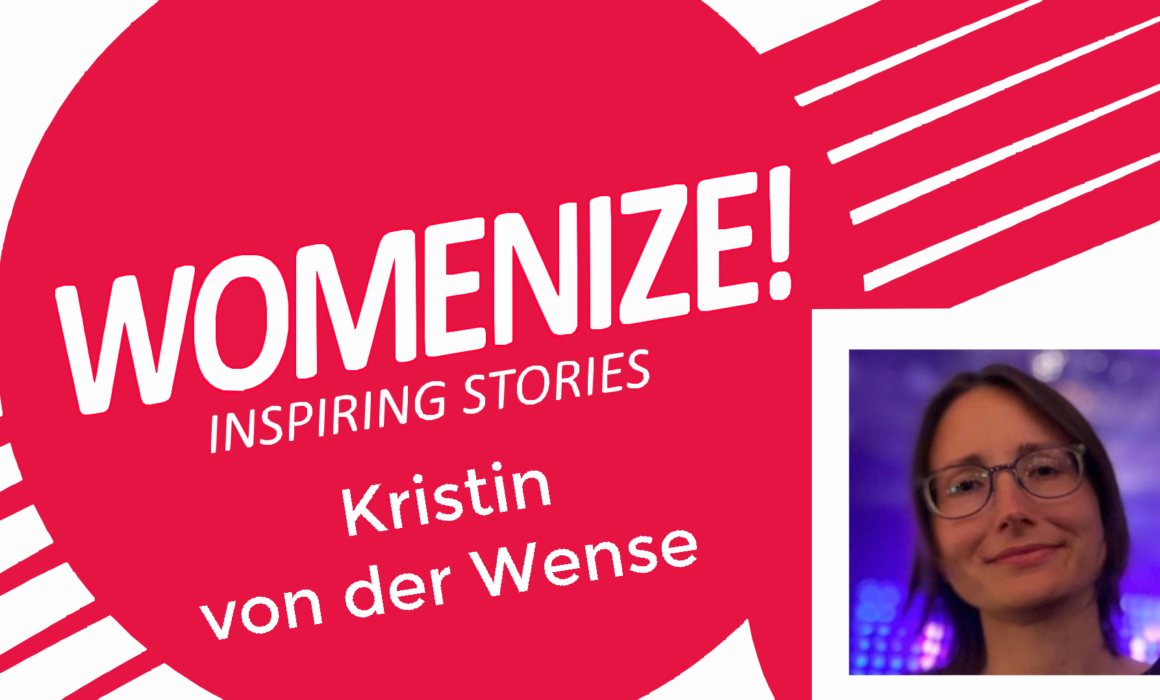Kristin von der Wense – Womenize! – Inspiring Stories
Womenize! – Inspiring Stories is our weekly series featuring inspirational individuals from games and tech. For this edition, we talked to Kristin von der Wense, Publishing Producer at Daedalic Entertainment. She speaks about how her media background led her to game publishing, where she blends past and new experiences to support developers and explore innovative ways to expand game narratives through traditional media. Read more about Kristin here:
Hi Kristin! From media studies to video game publishing, your journey spans diverse creative fields. What inspired you to transition into the games industry, and how have your past experiences shaped your approach as a Publishing Producer at Daedalic Entertainment?
The media studies were somewhat advertised as “learn how to make video games” which wasn’t exactly true, but it did choose it for that reason. As I always had a bit of an interest in video games and the industry. That interest fluctuated over the years of course, but the thought of working in the games industry was regularly at the back of my mind.
It’s tough to really pinpoint what I took exactly from where, but it’s true that some of it came from the studies, since it featured quite a broad stroke of games and media in general.
I also learned a lot of new things working as a Publishing Producer, given the change of industry and new field of work. That combination of old and new was rather beneficial to my personal development, and my work.
In your role as a Publishing Producer, you collaborate with various teams to bring games to life. Could you share a moment or project that felt particularly rewarding, and what you learned about leadership and creativity through that experience?
I’ve learned that it’s necessary to adapt my approach of how I work with the developers based on the developers walks of life. That doesn’t mean to completely change yourself or treat every developer entirely differently, since the core of honesty, keeping things on track and having the same overarching goal is applied to all projects. It’s more apparent in the nuances, like how I actually communicate with the developers and how hands-on the producing is.
A specific quote comes to mind that a developer shared with me when I think about rewarding moments. I’m paraphrasing here, but it was about me being a problem solver, not a problem maker, and really understanding their game and their vision.
Given your background in storytelling, interactive media, and podcasts, how do you see the intersection of traditional media and video games evolving? What opportunities do you envision for innovation in narrative-driven games?
Funnily enough, I was originally thinking about writing my bachelor thesis on media convergence, more specifically the intersection of video games and TV shows. Back then the amount of examples were few and far between. It basically came down to The Walking Dead and Defiance.
Nowadays there’s a massive amount of available platforms and media, not just for marketing video games, but also to share a game’s narrative and let your players engage with it. And by extension, possibly transforming and evolving it, or telling additional stories the game didn’t cover.
Though it is a tricky path to thread, since the game itself is the main focus and the player shouldn’t get the impression it isn’t. Neither should the player be constantly expected to pause the game and check some websites for actual lore or read an entire trilogy of thousand pager books.
The goal should be to find a way to make it worthwhile for the player, and give them enough incentives to seek it out, while not distracting from actually playing the game and experiencing its narrative.
I remember back when the first Last of Us launched there were websites for some of the game’s locations and stores. The example is pretty basic but it gets down to what I personally like about it: It’s not necessary to understand the game’s narrative, the game’s not pushing you to seek that out, but you learn more about the game’s world – which was what I wanted.
Getting to the actual questions, it really depends on what the goal of the intersection is. Is it to tell entirely different stories in the game’s universe, retell the game’s narrative beat by beat, share tidbits that aren’t necessary but interesting to learn or something the player can benefit from in the game. Like companion apps, companion podcasts, social media incorporation, AR and so much more.
And on top of that the game’s audience has a giant impact on the selection and execution of the above. It really has to be tailor made, copy and paste in this case seems like a terrible approach.
For example, having social media accounts, like Instagram or TikTok, for characters, which evolve over time showing the game’s narrative from a side characters perspective could be interesting for one game’s audience, but could lead to review bombing in other instances. I’m exaggerating a little bit of course.
Thanks for this interview, Kristin!
Kristin’s links: LinkedIn

